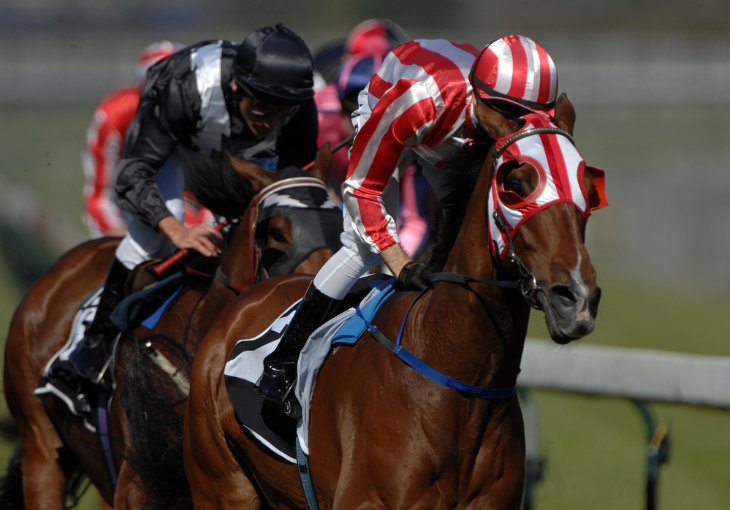- The Tradition of Horse Racing on Boxing Day
- The Cultural Significance of Boxing Day Horse Racing
- Main Venues and Races
- The Jockey's Role And Training Regimens
- The Horse Racing Industry And Its Economic Impact
- Public Engagement and Spectatorship
- Betting and Wagering Practices
- Regulation and Governance
- Future Prospects
- Conclusion
The Tradition of Horse Racing on Boxing Day
Boxing Day is a notable public holiday in the United Kingdom and other parts of the world influenced by British customs. Despite this, horse racing has remained one of the most stable and deeply-seated cultural practices. Boxing Day races aren't just another item on the racing calendar; they represent a historical and social phenomenon that forms part of the country's cultural fabric. This article looks at where it originated from, its cultural impact, its economic value, and how we look into it in the future.
The Cultural Significance of Boxing Day Horse Racing
To truly understand the influence of horse racing on Boxing Day on British society, one needs to look at many sides. Firstly, as an event, it brings people together for socialisation. Families, friends, and groups converge at the racecourse or watch through media outlets, thus strengthening their bondages during festivity periods. It is not only a sports occasion but also a more critical social occasion when people can meet each other despite belonging to different cultural backgrounds.
In addition, these races magnify various aspects of British culture. This includes things such as spectators' fashion choices—often an amalgamation of casual clothing with outlandish hats—and drinks served like mulled wine and mince pies, reflecting winter season British cuisine trends. Commentators' voices, songs sung there, and even bets placed give examples of local culture.
Moreover, the Boxing Day races symbolise British history and ideals. Ideas such as playing a fair game in all sports events, breeding pedigree being necessary for selecting horses, or even having a regulated manner of placing bets are some indications of below-embedded values in the British psyche.
Main Venues and Races
- A unique charm alongside historical significance: Each venue bears its own unique charm and history; however, together, they build up a collective narrative about Boxing Day horse racing.
- Kempton Park Racecourse: Kempton Park Racecourse is most well-known for The King George VI Chase, which has been held on Boxing Day since 1937.
- A Prestigious Occasion: Named after the late king, this meeting is one of the most prestigious fixtures in the national hunt calendar, and several legendary horses have won there.
- Wetherby Racecourse: Another notable place is Wetherby Racecourse in West Yorkshire, which hosts the Rowland Meyrick Handicap Chase.
- Testing Conditions: It has become analogous to severe race conditions, thereby challenging both horse and jockey and adding more suspense to watchers.
- Sedgefield and Market Rasen: In Scotland, Sedgefield and Market Rasen hold Boxing Day meetings, which are equally engaging but have a distinct local flavour.
- Individual Characteristics: Track specifics, such as nature, crowd response, or particular races at each venue, all add unique interfaces to the overall Boxing Day horse racing tradition.

The Jockey's Role And Training Regimens
Sometimes, jockeys are underestimated in this horse racing world, yet they hold a crucial position. The stakes are high on Boxing Day, after which the races are performed, and the public follows them keenly. More is needed for a jockey to be fit;; he should also understand horses' abilities and habits. This results from intense training that happens all year round, focusing on whole-body fitness to peak performance during such events.
Preparation is an all-year-round job for both the rider and the horse. It's not only about speed and stamina but also about having a bond between them. Training programs are strictly organised and may comprise various activities, including diet plans and psychological exercises. It is not enough to have elements working together; there must be their synchronisation, which can determine the outcome of any competition.
Typically, training becomes more rigorous in the weeks before December 26th as jockeys engage in hours-long discussions over tactics, review previous races, and practise simulated competitions. Consequently, it explains why seasonal changes like these usually give rise to some of the most magnificent performances ever seen during these encounters.
The Horse Racing Industry And Its Economic Impact
Boxing Day racing goes beyond being a spectacle of culture; it plays significant economic roles within the horse racing industry. For instance, huge amounts come from ticket sales, advertising rights, and sponsorship deals, and betting industry reports suggest that billions may be spent by betters on Boxing Day alone, thereby benefiting the betting companies themselves, the horse racing sector, and, consequently, the economy at large.
Furthermore, this economic effect continues after the race day itself. A business is created for bookies in anticipation of the Boxing Day events and hospitality services within venues; even transportation firms too near tracks become busy. For example, hotels will report full bookings while restaurants adjacent to courses see tremendous sales that increase the gross domestic products by a substantial margin.
Breeding and training are other sectors of horse racing affected by this nature. Victory in a race on Boxing Day may considerably raise a horse's value and, therefore, determine choices about breeding. Additionally, trainers and jockeys who do well on Boxing Day often find themselves in higher demand, commanding better fees and attracting more lucrative sponsorship deals.
Public Engagement and Spectatorship
Public participation in Boxing Day horse racing is essential to its popularity and cultural importance. This event falls on a festive season when many are usually on holiday, so the venues always have a high turnout. But it does not end with those who are physically present; many others watch via televisions or live streams, making it almost a national, if not international, affair.
The public’s involvement goes beyond being mere spectators. Fans frequently show their loyalty by placing bets, which has become closely associated with the sport. Others engage in centuries-old traditions of discussing these races in social gatherings, online forums or workplace forums. This inclusive engagement broadens the relevance and impact of Boxing Day horse racing into arenas outside the racecourse.
These races also serve as educational tools for those new to this sport. The public commentary surrounding these races often gives insights into horse racing that would otherwise not be possible for professional bettors, let alone amateurs. It attracts more people to follow horse racing, thus ensuring its continued growth and relevance.
Betting and Wagering Practices
- Integral Part of Racing: Betting has always been integral to Boxing Day horse racing. The stakes are usually much higher than usual, indicative of their significance within the annual horse racing calendar.
- Various Forms: There are various types of betting, such as traditional bookmaking or online platforms, where numerous wagering options are available. Experienced gamblers might choose complex bets such as accumulators, while amateurs would prefer simple win-place-show type wagers.
- Excitement and Engagement: This dynamic betting environment is more than an accompaniment to the event; it forms one of its key components that enhances thrill and participation on this occasion. The financial stakes add another layer of tactics and expertise.
- Consideration of Variables: Bettors must consider various factors, including form, weather conditions, and even the psychology of jockeys and horses.
- Regulation Challenges: Given the prevalence of betting, regulation challenges arise regarding being strong enough to curb malpractices and uphold fair play in the industry.
- Regulatory Bodies: The Gambling Commission is amongst other such bodies responsible for regulating activities in placing bets on Boxing Day races by legal and ethical codes.

Regulation and Governance
Boxing Day horse racing is a tradition governed by rules and regulations to protect its integrity like any major sporting event. Governance is essential for ensuring fairness and safeguarding the welfare of horses and jockeys involved. In the United Kingdom, this regulatory function mainly falls under the British Horseracing Authority (BHA), which covers all professional horse races.
Specific measures are implemented, particularly during high-profile events like Boxing Day, because they attract large crowds and involve huge amounts of money. This includes tighter security protocols, more scrutiny of betting activities, and enhanced testing processes for participating horses and riders. There are standard drug tests for both equine participants as well as human athletes, and violations attract harsh penalties.
The Gambling Commission regulates betting activities to ensure that all bookmakers adhere to the set legal frameworks. This is necessary to maintain public confidence in the betting system and safeguard against money laundering and fraud.
Governance has no permanent role; it changes with sport and society. For instance, there has been an influx of demands for more significant animal welfare considerations, leading to increased regulations on racehorse treatment.
Future Prospects
While this tradition continues to be celebrated today, there are a lot of challenges that lie ahead. Technological advancements, shifting social attitudes, and the increasingly competitive sporting landscape are all factors that may determine its path. On one hand, technology can offer several chances of making it more accessible to a global market. Live streaming and virtual reality can enable those unable to attend the live races to experience the thrill from any part of the world, thereby increasing the fan base.
Another area where opportunities exist relates to dealing with criticisms surrounding controversies associated with horse racing. Public concerns could be partly mitigated by being open about processes, having more muscular governance structures and being proactive towards animal welfare to ensure the long-term sustainability of culture.
It is worth noting that several steps have already been taken towards modernising boxing day racing to make it more inclusive. From campaigns targeting younger audiences to efforts to increase gender diversity among jockeys or trainers, this industry seems willing to adapt (adapt). Successfully implemented, these might teach how a traditional sport can transform into one fit for modern viewership.
Conclusion
Boxing Day horse racing is a tradition rooted in history, culture, and societal involvement. It is a unifying point within communities; it drives economic growth; moreover, it symbolises many years of hard work carried out by different people involved in sports. Critics argue that some aspects need change; however, this also shows its ability for change and transformation.
The future outlooks for Boxing Day horse racing are still being determined. Various factors, such as technology, regulation, and public opinion shifts, are expected to influence them. Nonetheless, its enduring popularity and determined efforts to address its challenges indicate that this tradition can adapt and flourish in the coming years.
When we consider different aspects of Boxing Day horse racing — from its origins and cultural significance to the roles of jockeys, spectators and governing bodies —- one thing becomes quite clear: it is a multifaceted tradition that is uniquely British. Its complexities must not overshadow its contributions or capacity for evolution and growth.








